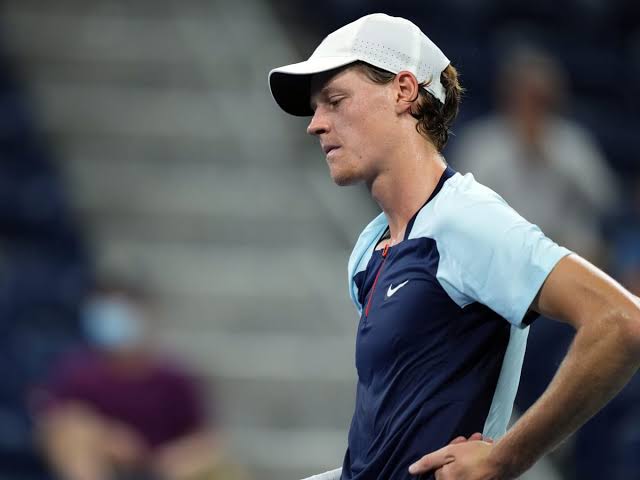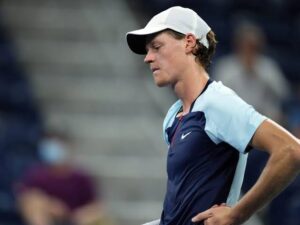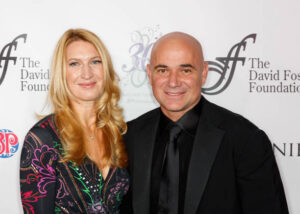
Top Seed Jannik Sinner Withdraws from Madrid Open: A Setback in Tennis’s Grand Stage

In a surprising turn of events, Jannik Sinner, the promising young tennis star and top seed in the Madrid Open, has made the difficult decision to withdraw from the tournament. This announcement comes as a disappointment to fans and pundits alike, who were eagerly anticipating his performance on one of tennis’s grand stages.
Sinner, known for his formidable skills and rapid rise in the tennis world, had been poised to showcase his talent and compete against some of the sport’s toughest opponents in Madrid. His withdrawal, however, underscores the unpredictable nature of professional sports and the challenges athletes face both on and off the court.
The decision to withdraw from such a prestigious tournament is never taken lightly, especially by a player of Sinner’s caliber. While the specific reasons for his withdrawal have not been disclosed, it is not uncommon for athletes to prioritize their physical well-being and strategic planning for future competitions. Injuries, fatigue, or personal considerations could all factor into such a decision.
For fans of the sport, Sinner’s absence leaves a void in the Madrid Open lineup. His powerful serves, agile footwork, and strategic gameplay have earned him accolades and admiration from tennis enthusiasts worldwide. Many had hoped to witness his prowess firsthand and see how he would fare against the formidable competition assembled for this event.
The impact of Sinner’s withdrawal extends beyond the court itself. Tournaments like the Madrid Open are not just opportunities for players to showcase their skills but also platforms for sponsors, broadcasters, and fans to engage with the sport. Sinner’s absence may alter the dynamics of the tournament, affecting scheduling, matchups, and overall viewer engagement.
In the midst of disappointment, however, there is also an opportunity for reflection and anticipation. Sinner’s decision to prioritize his well-being underscores the importance of athletes’ health and the rigorous demands of professional tennis. It serves as a reminder of the dedication and sacrifice required to compete at the highest levels of the sport.
As fans and analysts digest the news of Sinner’s withdrawal, speculation may arise about his future plans and upcoming tournaments. Will he recover in time for the next major event? How will this decision impact his ranking and season trajectory? These are questions that will linger in the minds of those following his career closely.
Beyond the immediate implications, Sinner’s withdrawal prompts a broader conversation about the physical and mental demands placed on athletes. Professional tennis players endure rigorous training regimens, travel schedules, and the pressures of competition, all of which can take a toll on their overall well-being.
For Sinner, navigating the complexities of a professional tennis career means balancing ambition with pragmatism. Withdrawals like this one serve as reminders of the human side of sports—a reminder that athletes are not invincible and must prioritize their health and longevity in a physically demanding profession.
Looking ahead, the Madrid Open will continue with its stellar lineup of competitors, each vying for victory and a chance to make their mark on the clay courts. While Sinner’s absence may alter the tournament’s dynamics, it also creates opportunities for other players to step up and seize the spotlight.
In conclusion, Jannik Sinner’s withdrawal from the Madrid Open is a setback for tennis fans who were eagerly anticipating his performance. His decision underscores the challenges faced by athletes and the importance of prioritizing health and well-being in a demanding sport. As the tournament progresses, fans will continue to follow the action, anticipating the emergence of new stars and memorable moments on the court.







